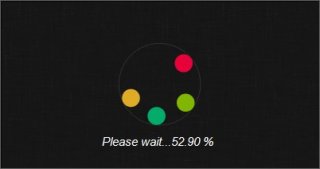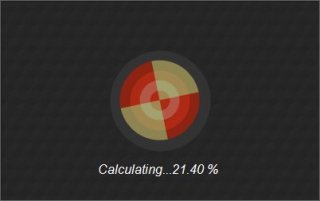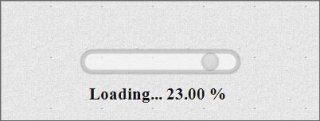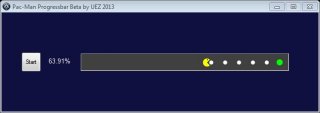Leaderboard
Popular Content
Showing content with the highest reputation on 08/18/2013 in all areas
-
mesale0077 asked me whether I could code some CSS loading animations from different web sites. These are the results using GDI+ (AutoIt v3.3.12.0+ required!): _GDIPlus_MonochromaticBlinker.au3 / _GDIPlus_RotatingBokeh.au3 _GDIPlus_SpinningCandy.au3 / _GDIPlus_SteamPunkLoading.au3 _GDIPlus_IncreasingBalls.au3 / _GDIPlus_PacmanProgressbar.au3 _GDIPlus_StripProgressbar.au3 / _GDIPlus_RingProgressbar.au3 _GDIPlus_LineProgressbar.au3 / _GDIPlus_SimpleLoadingAnim.au3 _GDIPlus_TextFillingWithWater.au3 / _GDIPlus_MultiColorLoader.au3 _GDIPlus_LoadingSpinner.au3 / _GDIPlus_SpinningAndPulsing.au3 _GDIPlus_TogglingSphere.au3 / _GDIPlus_CloudySpiral.au3 _GDIPlus_GlowingText.au3 (thanks to Eukalyptus) / _GDIPlus_HypnoticLoader.au3 _GDIPlus_RotatingRectangles.au3 / _GDIPlus_TRONSpinner.au3 _GDIPlus_RotatingBars.au3 / _GDIPlus_AnotherText.au3 (thanks to Eukalyptus) _GDIPlus_CogWheels.au3 (thanks to Eukalyptus) / _GDIPlus_DrawingText.au3 (thanks to Eukalyptus) _GDIPlus_GearsAnim.au3 / _GDIPlus_LEDAnim.au3 _GDIPlus_LoadingTextAnim.au3 / _GDIPlus_MovingRectangles.au3 _GDIPlus_SpinningAndGlowing.au3 (thanks to Eukalyptus) / _GDIPlus_YetAnotherLoadingAnim.au3 _GDIPlus_AnimatedTypeLoader.au3 / _GDIPlus_Carousel.au3 Each animation function has a built-in example how it can be used. AiO download: GDI+ Animated Wait Loading Screens.7z (previous downloads: 1757) Big thanks to Eukalyptus for providing several examples. Maybe useful for some of you Br, UEZ PS: I don't understand CSS - everything is made out of my mind, so it might be different from original CSS examples1 point
-
AutoIt_Help_En.7z You can try the help file with links v3.3.9.17 (Beta) And I made an external file with the styles. You can change the style (default.css).1 point
-
1 point
-
smart searching. You can make use of the fact that you seem to be having a-f after the 1. The ascii values of a-f are just sequential so subtract 96 (or 97 if you prefer to start with 0) local $checkInFolder=@ScriptDir ; Shows the filenames of all files in the current directory. Local $search = FileFindFirstFile($checkinfolder & "\material*.*") ; Check if the search was successful If $search = -1 Then MsgBox(0, "Error", "No files/directories matched the search pattern") Exit EndIf While 1 Local $file = FileFindNextFile($search) If @error Then ExitLoop consolewrite("File : " & stringformat("[%-35s]",$file) & " is at position: " & asc(StringMid($file,11,1)) -96 & @CRLF) WEnd ; Close the search handle FileClose($search)1 point
-
LastSoul, Would you care to explain why you appear to be cycling through a text file of usernames and passwords and trying to login to a network? M231 point
-
This solution takes a different approach and will also with wildcards using fileexists and puts a 1 in the array if the file exists. Array to excel should be easy as file position is allways the same exact match if you uncomment the code of the first array (and comment out current array) Edit: Made it in the example all with wildcard * local $i ;~ local $myFiles[2][8] = [ _ ;~ ["material-1a_124567.pdf", _ ;~ "material-1b_12345_12345.pdf" , _ ;~ "material-1c_12345_nesting.pdf", _ ;~ "material-1d_us_04030-2010-09-03.pdf", _ ;~ "material-1e_z35_SL1020_01.pdf", _ ;~ "material-1f_W1305050.pdf", _ ;~ "material-1g_SL1025_02.pdf", _ ;~ "material-1h_painting.pdf"], _ ;~ [0,0,0,0,0,0,0,0]] local $myFiles[2][8] = [ _ ["material-1a*.pdf", _ "material-1b*.pdf" , _ "material-1c*.pdf", _ "material-1d*.pdf", _ "material-1e*.pdf", _ "material-1f*.pdf", _ "material-1g*.pdf", _ "material-1h*.pdf"], _ [0,0,0,0,0,0,0,0]] local $checkInFolder=@ScriptDir consolewrite("Start looking for files " & @CRLF) for $i=0 to ubound($myFiles,2)-1 consolewrite($i & @TAB & $checkInFolder & "\" & stringformat("[%-35s]",$myFiles[0][$i]) & @TAB & $myFiles[1][$i] & @CRLF) if fileexists($checkInFolder & "\" & $myFiles[0][$i]) Then $myFiles[1][$i]=1 endIf Next consolewrite("Those files with a 1 behind exists" & @CRLF) for $i=0 to ubound($myFiles,2)-1 consolewrite($i & @TAB & stringformat("[%-35s]",$myFiles[0][$i]) & @TAB & $myFiles[1][$i] & @CRLF) Next consolewrite("End " & @CRLF)1 point
-
Try this method: For $1 = 0 To UBound($aFiles) - 1 Select Case StringInStr($aFiles[$1][0], '-1a') > 0 ConsoleWrite('Found '&$aFiles[$1][0]&' in element ' & $1 & ' of array' & @LF) Case StringInStr($aFiles[$1][0], '-1b') > 0 ConsoleWrite('Found '&$aFiles[$1][0]&' in element ' & $1 & ' of array' & @LF) Case StringInStr($aFiles[$1][0], '-1c') > 0 ConsoleWrite('Found '&$aFiles[$1][0]&' in element ' & $1 & ' of array' & @LF) Case StringInStr($aFiles[$1][0], '-1d') > 0 ConsoleWrite('Found '&$aFiles[$1][0]&' in element ' & $1 & ' of array' & @LF) Case StringInStr($aFiles[$1][0], '-1e') > 0 ConsoleWrite('Found '&$aFiles[$1][0]&' in element ' & $1 & ' of array' & @LF) Case StringInStr($aFiles[$1][0], '-1f') > 0 ConsoleWrite('Found '&$aFiles[$1][0]&' in element ' & $1 & ' of array' & @LF) EndSelect Next Or you can try this simplified version using _ArrayFindAll() local $criteria, $array,$count, $write For $count=0 to 5 ; loop from a to f $array=_ArrayFindAll($aFiles,"-1"&stringlower(Chr(65 + $count)),0,0,1,1,0) ; use this function to retrieve the index similar criteria in array form For $write=0 to Ubound($array)-1 ; write to the console fo each of them ConsoleWrite('Found '& $aFiles[$array[$write]][0] &' in element ' & $array[$write] & ' of array' & @LF) Next Next ; Above function will be more simpler than using select, case method Both function will produce the same outcome.1 point
-
drbyte, The position of the file within the array is dependent on what _FileListToArray returns. You can search for any file by name (such as you've done or using _arraysearch UDF). kylomas1 point
-
I voted yes, but unless a poll got an overwhelming yes, I don't think it should be considered. The way I see it is there are sometimes many functions used in an example to demonstrate one function, a simple click to hop to any of them would benefit beginners.1 point
-
If anyone wants a new project, I`d like to see a Slot machine game done in Autoit. I have fond memories of playing the old style Uk "Fruit" machines with (three) mechanical wheels and the jackpot of coins were shown in a window on the front of the machine.1 point
-
It is because a const in AutoIt is a read only variable as I was informed in the past. There is little advantage other then the Do-Not-Change-My-Value behavior. Quote from myself from here about const.1 point
-
Oh hell, HAVE TO POST IT. http://youtu.be/katzz57tmm41 point
-
I know, it's very strange, but whenever I used "=", I couldn't always get all IE object's properties, but only the first one. I don't know why is this happening because in autoit "=" means both, set and get value, but when it comes to object's properties, (at least with IE objects), I'm forced to use "==" because that's the only way for me to get all data I need. I dunno if it's IE version related, or OS related, or AutoIt version related... All I know is that I have IE 10, win7 64-bit, and I must use "==" to get all values. I also know that on my older system (WinXP 32-bit, with IE8) I could use only "=" to get all values.1 point
-
If onclick="openFbLWin_857528();" is static, you could just execute the javascript function: $oIE.document.parentWindow.execScript('openFbLWin_857528();',"javascript")1 point
-
If you ever watched a movie on PC you know how annoying it can be if explosions, shooting, fighting, car chasing are too loud and conversation between characters can be barely heard. I made this script to monitor master volume level and decrease or increase volume if necessary - Requires Stereo Mix in the recording options of your system to be enabled and set as default device. Script also requires plugin by wraithdu, and SoundQuery.au3 by Austin Beer, can be found (All requirements are included into attachment) Auto Volume Control.zip1 point











































